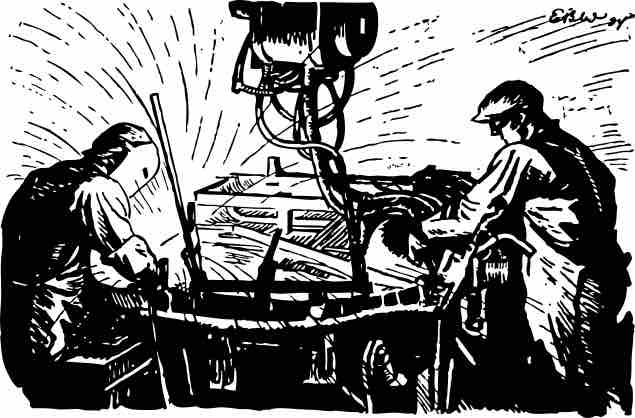The Downside of Efficiency
The classical view of management tends to focus on the efficiency and productivity of workers rather than on workers' human needs. Generally the classical view is associated with Taylorism and scientific management, which are largely criticized for viewing the worker as more of a gear in the machine than an individual. Under Taylorism the work effort of workers increased in intensity, but eventually workers became dissatisfied with the work environment and became angry, which affected their overall work ethic. This dissatisfaction undoes the value captured via increased efficiency.
Taylorism's negative effects on worker morale only added fuel to the fire of existing labor-management conflict, which frequently raged out of control between the mid-19th and mid-20th centuries (when Taylorism was most influential), and thus it inevitably contributed to the strengthening of labor unions. That outcome neutralized most or all of the benefit of any productivity gains that Taylorism had achieved. The net benefit to owners and management ended up being small or negative. It would take new efforts, borrowing some ideas from Taylorism but mixing them with others, to produce more successful formulas.

Factory workers
Taylorism and classical management styles negatively affected the morale of workers, which created a negative relationship between workers and managers.
Scientific management also led to other pressures tending toward worker unhappiness. Offshoring and automation are two such pressures that have led to the erosion of employment. Both were made possible by the deskilling of jobs, which arose because of the knowledge transfer that scientific management achieved, whereby knowledge was transferred to cheaper workers, as well as from workers into tools.
The Human Factor
To summarize, the underlying weakness of the classical view of management is the omission of the fact that employees are people first and resources second. This criticism opened doors for theorists such as George Elton Mayo and Abraham Maslow, who emphasized the human and behavioral aspects of management. After all, what value is wealth if the individual loses the sense of self-worth and happiness required to enjoy it? The behavioral approach to management took an entirely different approach and focused on managing morale, leadership, and other behavioral factors to encourage productivity rather than solely managing the time and efficiency of workers.
Corporate Growth
Another disadvantage of the classical perspective arises from the growing size and complexity of the modern organization. Using metrics to examine specific employee behavior may be feasible in a smaller organization pursuing homoegeneous tasks, but it becomes more difficult when trying to accomplish this at an organization that has hundreds of employees pursuing various complex functions. In this situation, it may be more beneficial to use tactics that are less focused on the individual employee and more on improving overall productivity. This will involve less micromanaging and more trusting employees to do the right thing while at the workplace. The onus of enabling efficiency, therefore, shifts from workers to managers.